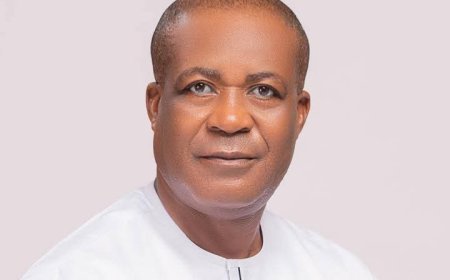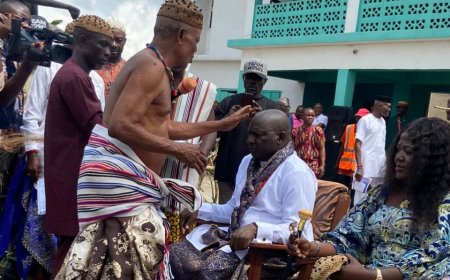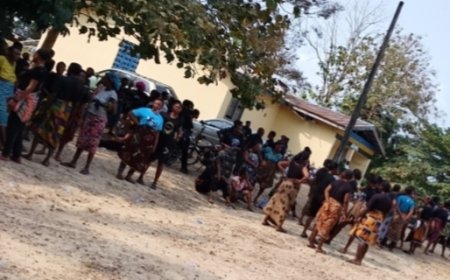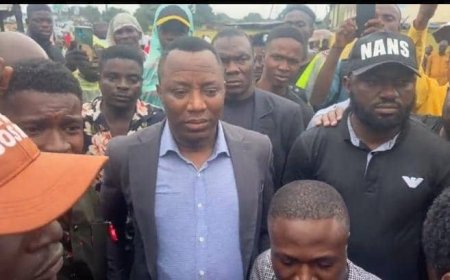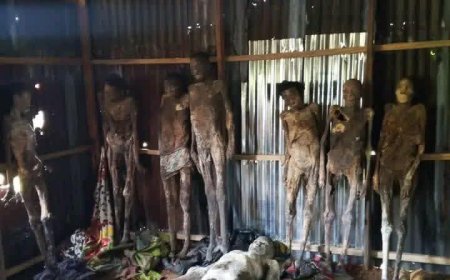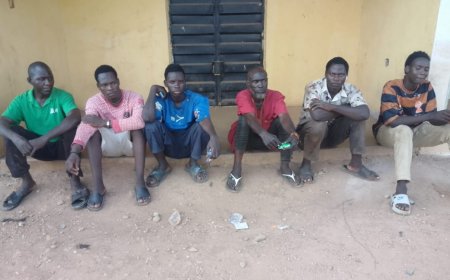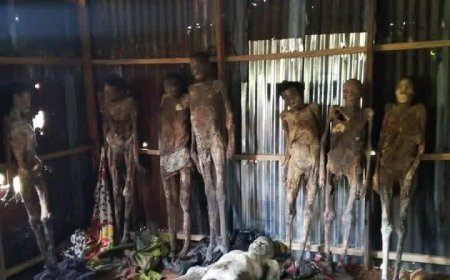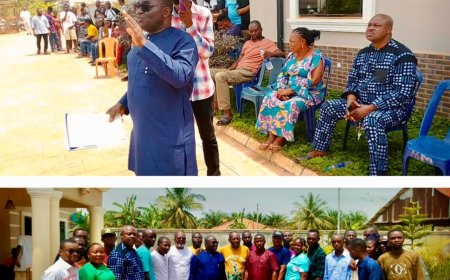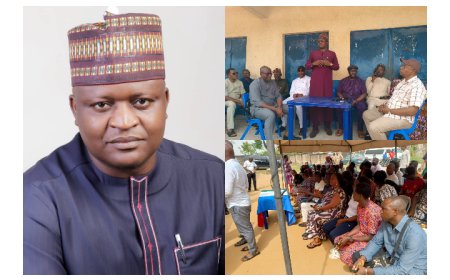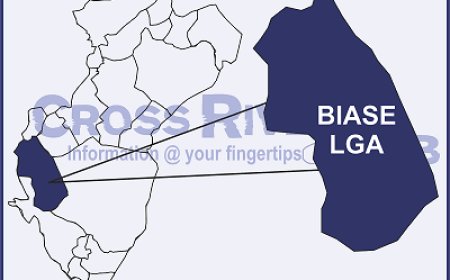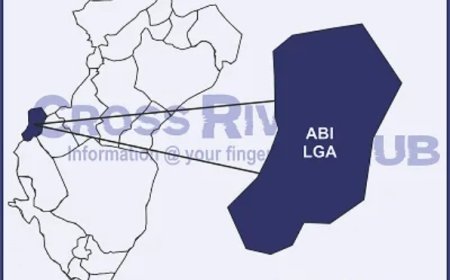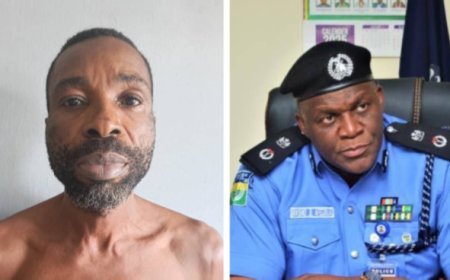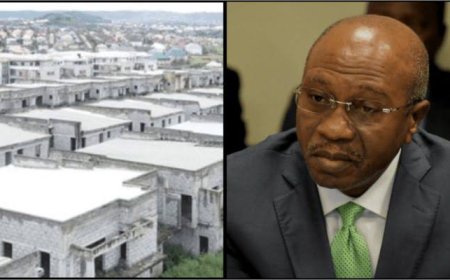Features: How Boko Haram is Tracking and Assassinating Defectors in Nigeria’s North East.
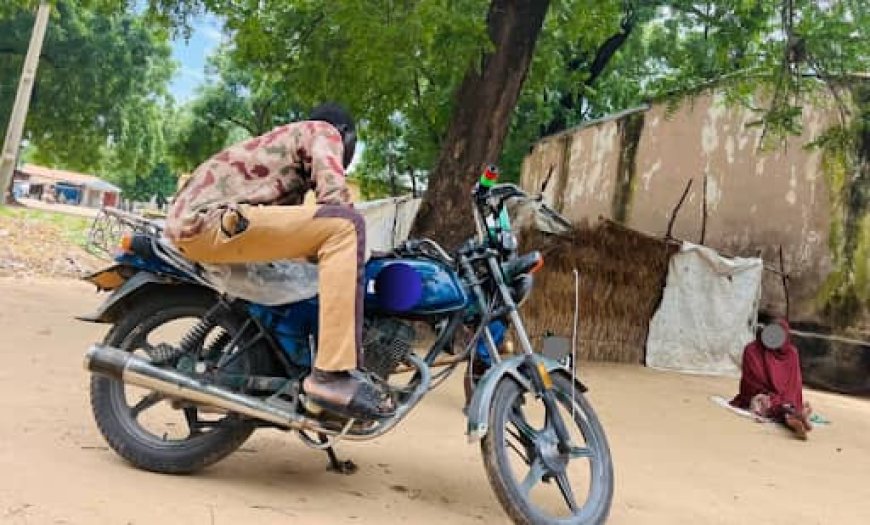
Here’s How...
After thirteen years with Boko Haram, Kakana fled and surrendered in 2021, hoping to reclaim his freedom. Instead, he became a target of a silent manhunt against defectors across communities in Nigeria’s North East, including Maiduguri. He has survived an attempt on his life once.
A group of people walking on a sunny day; one person carries a rifle. Trees and buildings are visible in the background.
Surrendered terrorists now work with state-backed security services to protect communities in Nigeria’s North East.
_His past refused to let go._
When Kakana renounced allegiance to Boko Haram in 2021, he returned home hoping to rebuild his life, but the first months were marked by trauma; flashbacks of the warfronts, the forest hideouts, the faces of those who died, and the sound of gunfire. Even in daytime, every loud sound triggered the memories.
Before the war, Kakana had completed his higher education and earned a computer skills certificate. He was a bright student admired for his intelligence and calm nature. But in 2008, at the height of the insurgency’s recruitment drive, he was drawn into Boko Haram’s ranks — a decision he now describes as the moment his life fell apart.
“I cried while [recently] going through my credentials,” he said, when he finally left the group and returned to Borno State. “I knew I had ruined my life. When my mother handed me a document of the credentials, it reminded me of my school days and the good times I had.”
Kakana mostly stayed indoors when he returned. Going outside hurt; even children hid behind their parents when they saw him. He was later encouraged by family members and other community members to start attending social gatherings.
_The struggle to reintegrate_
Two years later, poverty and lack of opportunities pushed Kakana to join a group of surrendered terrorists constituted by the Nigerian Army to support their operations against terrorists in the country’s North East. Kakana and his comrades, alongside the military, carried out several missions and deadly operations across the state. He was often in familiar places, facing enemies who were once his friends and even family. Every mission reopened wounds that had barely begun to heal.
“We lead the army during operations. The lineup for every patrol starts with us at the front, followed by members of the Civilian Joint Task Force (CJTF), and then the Nigerian Army and other security personnel behind. We are always in the lead. We face the bullets first and die more than anyone else,” Mamman, a surrendered terrorist who has participated in several missions with the military, told HumAngle.
Person in camouflage jacket kick-starting a motorcycle outdoors, near a seated individual on sandy ground, with trees and a thatched structure.
Surrendered terrorists say they are paid meagerly while risking their lives in operations with state forces.
The risks were high, but the pay was not enough to cater for his needs, so he quit.
“They agreed to pay us ₦50,000 a month, but we were rarely paid the full amount. Sometimes ₦25,000 came, sometimes nothing at all,” Kakana said. Ten others also left.
Leaving again meant starting from nothing. But things soon got worse when he realised that three of his friends, who also left, were part of a group of ten Boko Haram spies.
Under surveillance
Across the North East, Boko Haram has built a network of spies who monitor repentant fighters and defectors living across major towns and garrison communities.
Soon, Kakana discovered he was on their execution list. Seven others on the list had already been killed. He knew he was under surveillance, and he might be next. “The spies carried the photographs of targets, and in some instances, even videos,” he said.
When HumAngle asked why he was a target, Kakana said, “I was a high-ranking fighter in Boko Haram, and now I led several patrol missions against them in their most remote hideouts. They don’t like it.”
Exiting Boko Haram comes with a lot of risks and danger, especially for fighters like Kakana, who are all documented and even carried identity cards before they defected. That implies that even if you exit, hunting would be easy anywhere you go.
“Most of the cases, we just plot exit plans without them knowing. Disappear and change life, or fake death. Else, they hunt you down wherever you go,” Kakana said.
Around the streets of Maiduguri, he said he could differentiate between those who genuinely surrendered and terrorists who moved around the city to collect information and do other transactions.
“We met several times [spies and informants] on the road and sometimes in marketplaces, I know them by name and face,” he claimed. However, he often pretended not to know them, and they also avoided him whenever they crossed paths.
Each encounter deepened his anxiety. Even when he took menial jobs like helping herders at the market, he was not comfortable, so he left for Monguno, a garrison community in northern Borno, where the line between surrendered and active Boko Haram and locals is an intricate fabric of controversy.
“Some of my friends continued the dehumanising security patrols for the army, but many wanted to leave because they were tired,” Kakana said.
While he struggled to find an alternative way of life, his suspicions that he was being monitored continued to grow. In Monguno, Kakana decided to start farming. It was his first time in the town as a civilian. He went there in the past during military operations.
The town, once a Boko Haram stronghold, is now a place of refuge where fear of infiltration lingers in the minds of everyone.
_Terrorist groups in North East Nigeria used spies to hunt and assassinate defectors._
“Boko Haram fighters and members visit the town anytime they want to carry out their errands and assassination missions. In multiple cases, they infiltrate the town with a list that most often targets members of the Civilian Joint Task Force, military state actors, high-profile business moguls, ‘infidels’, and other foes they targeted,” Kakana said.
He noted that targets are arrested and made to face prosecution and are often sentenced to death, imprisonment, or face other forms of punishment issued by the Boko Haram judicial structure. Other times, they instantly killed.
A few months ago, two immigration officers working in Monguno town were assassinated by the spies, Kakana told HumAngle.
“I was shocked by the incident,” Kakana said. After the killing of the officers, they proceeded into the main town with a list of seven persons targeted for assassination.
“They searched house to house where the targets would be hiding,” he noted.
During the operations, everywhere was terrorised, but locals in Monguno eventually realised that they did not come to kill everybody; they continued with their daily activities. They drove out of the town when they were done.
_The escape and the trap_
Kakana returned to Maiduguri after the incident. He was scared.
When the rainy season started a month later, he returned to continue farming on a plot of land he leased at the outskirts of the town. “I did not tell anyone where my farmland is, because I am scared I would be exposed more,” Kakana said.
He spends the night on the farm most of the time, but he prepares two sleeping spaces: one as a decoy to deceive intruders, and another where he actually sleeps.
“I go far away to another farmland to sleep,” he said.
One evening, his fears almost came true. Kakana told HumAngle that masked terrorists invaded his farmland on about 15 motorbikes, armed with rifles. He wasn’t there at the time; his neighbours were threatened not to inform him about their visit so that he would not flee. He learned about it when he returned.
Kakana fled to Monguno town the following morning and stayed hidden for a week. There, he saw one of his pursuers in the market. “He spent about ₦700,000 on goods. I reported him to the security forces, but they could not arrest him; he had left,” he said.
A few days later, Kakana met one of his old friends, with whom he had worked closely while with the military-backed group. He had gone back to Boko Haram and was now operating as a spy.
They had a friendly interaction. The man asked Kakana about his life, where he lived, and even encouraged him to return to the terror group. “He even said that my financial problems would come to an end if I rejoined,” he recalled. But Kakana sensed danger — he knew the visit was suspicious, and the man’s friendliness was a trap.
So, he lied, saying he was planning to travel to Niger Republic to figure out his next steps.
Armed soldier in camouflage patrols a busy street with bicycles passing by, under a clear blue sky.
_Kakana hopes to find safety and rebuild his life._
The friend urged him not to go far, suggesting instead that he could go to his uncle, who lives in Chad. He even offered financial help. He handed Kakana his ATM card and asked him to withdraw ₦200,000 from a Point Of Sale (PoS) agent. Kakana followed the instructions and returned ₦150,000 to him, keeping ₦50,000 for his supposed transport fare. The friend insisted on knowing the exact date of his trip, but Kakana, staying cautious, lied again and mentioned a false date. They eventually parted ways.
_Soon after, Kakana’s life turned into a nightmare._
“They tracked me further, and I was under watch everywhere I went. When I went to a house to rest, groups of Boko Haram men fully dressed with rifles came 30 minutes later. I hid in the toilet and then jumped inside the pit latrine to save my life,” Kakana recalled.
He stayed there until dawn, covered in filth. Once everywhere was calm, Kakana said he came out and ran 15 kilometres barefoot in the middle of the night until a truck driver helped him flee Monguno. “The driver gave me water and clothes. He didn’t ask many questions. He just helped me,” Kakana recounted.
He eventually made it to Maiduguri, where he now stays in hiding.
There, he tries to rebuild his life quietly, but fear still lingers. “They still track me. Sometimes, I change locations. I no longer sleep in one place for long,” he said.
These threats to surrendered Boko Haram members have doubled the cases of recidivism recorded since the launch of Operation Safe Corridor, the state-run disarmament, deradicalisation, rehabilitation, and reintegration of low-risk, surrendered Boko Haram and Islamic State West Africa Province (ISWAP) members.
Although HumAngle could not access official figures, several defectors and others with knowledge of these activities said the number of surrendered terrorists returning to their former lives is alarming, all because they did not meet the life they were promised.
Source: HUMAN ANGLE
www.humanganle.com






